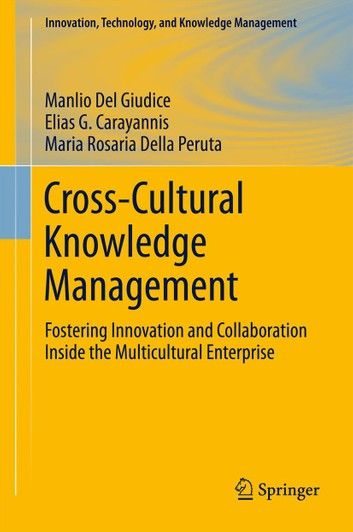| FindBook |
有 1 項符合
Cross-Cultural Knowledge Management的圖書 |
 |
Cross-Cultural Knowledge Management 作者:Maria Rosaria Della Peruta,Elias G. Carayannis,Manlio Del Giudice 出版社:Springer New York 出版日期:2011-12-15 語言:英文 |
| 圖書館借閱 |
| 國家圖書館 | 全國圖書書目資訊網 | 國立公共資訊圖書館 | 電子書服務平台 | MetaCat 跨館整合查詢 |
| 臺北市立圖書館 | 新北市立圖書館 | 基隆市公共圖書館 | 桃園市立圖書館 | 新竹縣公共圖書館 |
| 苗栗縣立圖書館 | 臺中市立圖書館 | 彰化縣公共圖書館 | 南投縣文化局 | 雲林縣公共圖書館 |
| 嘉義縣圖書館 | 臺南市立圖書館 | 高雄市立圖書館 | 屏東縣公共圖書館 | 宜蘭縣公共圖書館 |
| 花蓮縣文化局 | 臺東縣文化處 |
|
|
Cross-cultural knowledge management, an elusive yet consequential phenomenon, is becoming an increasingly essential factor in organizational practice and policy in the era of globalization. In order to overcome culturally shaped blind spots in conducting research in different settings, this volume highlights how the structuring of roles, interests, and power among different organizational elements, such as teams, departments, and management hierarchies (each comprised of members from different intellectual and professional backgrounds), generates various paradoxes and tensions that bring into play a set of dynamics that have an impact on learning processes.
In this context, such questions often arise: How is knowledge shared in the multicultural organization? What problems and issues emerge? How do different mentalities affect people’s responses to new knowledge and new ideas? How can knowledge-sharing processes be improved? Under which conditions do ideas generated by units or groups of different cultural traditions have a chance of being heard and implemented?
Such questions translate into an investigation of potential managerial dilemmas that occur when different but equally valid choices create tensions in decision making. The authors draw from experiences working with a wide variety of organizations, and insights from such fields as sociology and psychology, to shed new light on the dynamics of knowledge management in the multicultural enterprise. In so doing, they help to identify both obstacles to successful communication and opportunities to inspire creativity and foster collaboration. The authors note that in order to enable organizations to transfer knowledge effectively, mechanisms for dispute settlement, mediation of cultural conflict, and enforcing agreements need to be in place.
|











